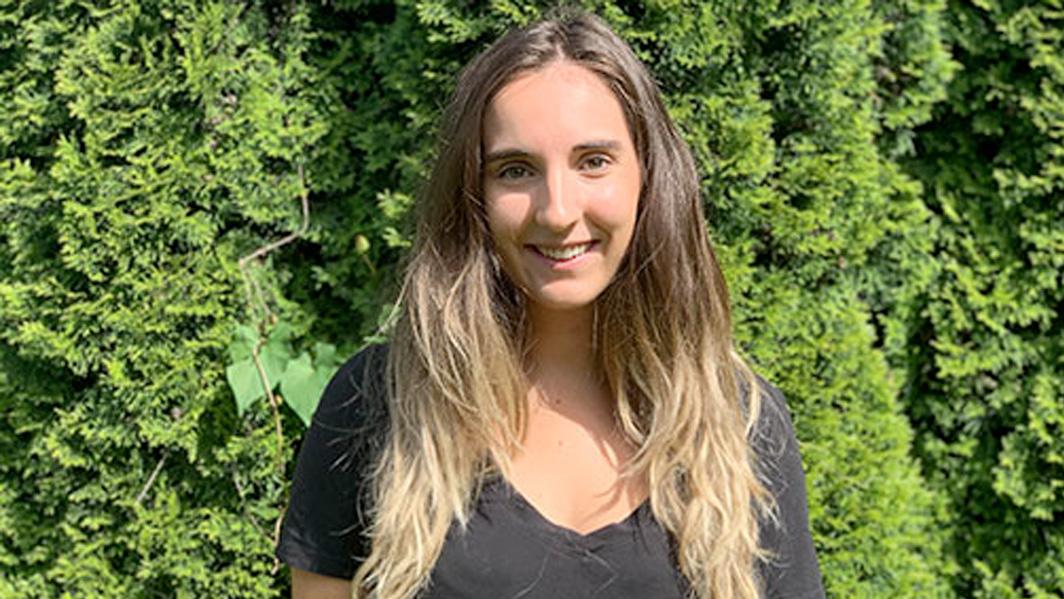Kirsten Krajnc
Civil engineering co-op student learns how to collect historical weather data while working with Indigenous Services Canada.
About

My name is Kirsten Krajnc and I am currently a 5th year civil engineering student at UVic. I chose to study at UVic because of the beautiful campus and tight knit community atmosphere.
I also chose UVic because the co-op program is mandatory while studying to receive a degree in any field of engineering.
I knew that I really wanted to do co-op and heard great things regarding all the resources that UVic provides to their students to help them find co-ops.
I have always known that I wanted to pursue a degree with co-op because my dad participated in co-op during his degree back in the 90s, and he is still at the same office (and phone number!) with the federal government that he completed his last co-op with. He has been a large influence in why I wanted to participate in co-op.
Work term
My federal government work term was with Indigenous Services Canada in their Community Infrastructure Department at their downtown Vancouver office.
My responsibilities included pulling historic data from the Environment Canada website near different First Nation reserves across the province and analyzing it to discover patterns in years that had major weather events, such as flooding, and seeing which factors lead to that event to see if it would be possible to predict future events.
I worked closely with a team of senior engineers who all helped to expand my critical thinking and analytical skills. I felt very supported during my time there and as though I could go to any of them for help or advice when I needed it.
They created such an amazing, positive atmosphere for me during my first co-op term and I look back fondly on my experience with the federal government and hope to one day work for the federal government again.
One of my favourite projects that I worked on was about the large earthquake and tsunami event that is supposed to occur on the coast of British Columbia in the coming years. ISC hired outside engineering companies to model what this event may look like and how different scenarios could effect the coast of BC.
The engineering companies that we hired provided us with a formal report which detailed how each coastal First Nation reserve could be effected by these events. It discussed the areas of each reserve that were least likely to be effected.
It was my job to read these reports and create shorter memos with less technical engineering jargon so the average person would be able to comprehend the premise of the report. It was very interesting work.
My favourite part of my work term was participating in a site visit for a meeting with the Semiamoo First Nations on their reserve. Various stakeholders attended to discuss a future project. At the beginning of the meeting, a member of the First Nation community spoke to the group about the story of their ancestors. It was fascinating and something that I will never forget.
Learning outcomes
I believe that co-op has added so much practical value to my degree and that I have learned so many things that hands on experience has taught me which I would not have had the privilege of learning if I didn’t participate in co-op.
In engineering, much of your class time is focused on the technical approach, so the co-op program is a way to receive real life experience of what it is like to work in the field.
I was able to apply my knowledge that I learned in my first-year technical writing course when writing memos for the coastal earthquake and tsunami project for the Senior Engineers at ISC.
I also was able to use the problem solving skills that I learned while working on various projects at school to review and analyze the historical weather data that I collected.
I also learned many practical professional office skills during my time with the Federal government. For example, during my first day of co-op at ISC, I didn’t know that I could just get up and leave as soon as my 8 hours were up. I waited around an extra 30 minutes to see what was supposed to happen at the end of the day.
I am not completely sure where I want to pursue my future career, but I am keeping my options open and excited to see what the future holds for me.
